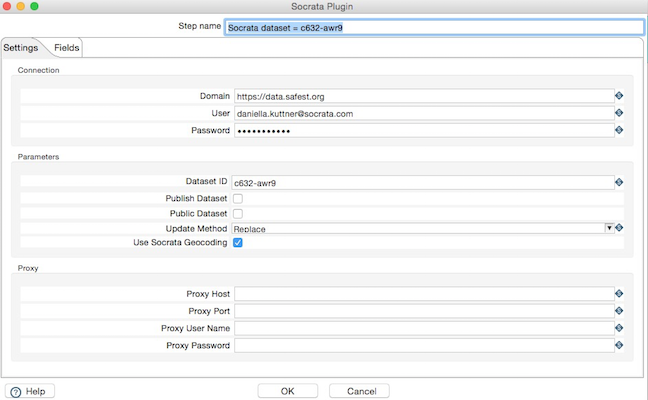

- #Pentaho data integration salesforce install#
- #Pentaho data integration salesforce manual#
- #Pentaho data integration salesforce download#
Download to Salesforce using Data Loader.

Upload necessary data from Salesforce to CSV files.Processing existing data in Salesforce is as follows: Alternatively, upload an object from CSV to Salesforce. The utility allows you to select an object in Salesforce and export data to a CSV file. Unloading / loading records is carried out using the Salesforce API. Migrating with Data Loader is the best practise and most popular method for handling a large number of records. Allows you to process up to 5 million records. When deploying from sandbox to a productive class, like any other APEX code, it must be covered by a unit test.ĭata Loader is a standard Salesforce utility installed locally. Thus, the method is suitable for large-scale data changes within Salesforce, but it is very laborious. Or create a Job, with which the process starts at a certain time. You can run the class manually from the Developer Console:ĭatabase.Batchable batch = new myBatchClass () Batch is a custom class inherited from Database.Batchable, written in APEX. Unlike the previous one, this method allows you to process up to 10,000 records, according to Salesforce Limits. When you need to make changes to many records that are already inside Salesforce, you can use Batch APEX.
#Pentaho data integration salesforce manual#
Thus, the method is only suitable for small, simple manual changes.
#Pentaho data integration salesforce install#

When inserting Contact, the Id of the Account record is used, obtained after inserting Account. In the example below, the test account Account is inserted, then Contact. In the script, related objects are populated sequentially. You need to prepare the APEX script, then run it in the Salesforce Developer Console. In any case, a record by reference must be created before the record that refers to it. Plus, links to any non-standard (custom) objects are possible. In reality, communications can be even more complicated, for example, an Opportunity object refers to both Account and Contact. The problem is that when you save the Contact record, you must specify the Id of the associated Account record, that is, the account must exist at the time of adding the contact record. For example, frequently used standard objects are Account (information about the client’s company), Contact (information about the client himself).

In Salesforce, the task often arises of massively creating / changing / deleting a group of related records in several objects, analogs of tables in a relational database. I want to share something useful with those who work with Salesforce. My name is Ilya Grebtsov, I work Java / JS Developer in DataArt.


 0 kommentar(er)
0 kommentar(er)
